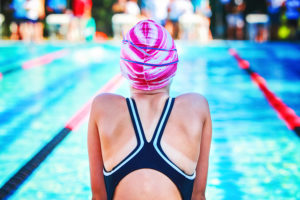Common Mistakes Young Athletes Make
By Sarah Heckler, MS, RD/LDN, CISSN
The ultimate goal for any athlete is to improve their performance. This requires proper training, adequate nutrition and mental stamina. I would love to say that nutrition is everything, but it is just one piece of the puzzle. However, poor nutrition can negatively affect performance. Some of the many consequences that can occur include cramping, fatigue and poor recovery. If you’re a young athlete looking to play at the collegiate level and beyond, watch out for these common nutrition mistakes.
Not Eating Enough
I find that not eating enough is the most common mistake young athletes make. Young athletes often do not consume enough to support all of their training. Not consuming enough carbohydrates during activity can lead to cramping as well as fatigue. Additionally, not fueling properly after a workout can lead to poor recovery and muscle soreness. What to do: Consume snacks between meals, before and after workouts and talk with a sports dietitian to help make sure you are meeting your needs.
Focusing Only on Carbs
Carbohydrates are important in an athlete’s diet, they provide energy required for hard training. The Academy of Nutrition and Dietetics recommends carbohydrate intake based on exercise load.
- Light (low intensity, skill based activity) = 3-5 g/kg/d
- Moderate (~1 hour/d) = 5-7 g/kg/d
- High (1-3 hours/d) = 6-10 g/kg/d
- Very High (>4-5 hours/d) = 8-12 g/kg/d
These are general recommendations and every athlete’s need will be different. Talk with a sports dietitian to determine your carbohydrate intake goals.
Due to the importance and accessibility of carbohydrates, many young athletes only focus on carbohydrates and tend to forget about the other two macronutrients; protein and fat. Lean protein aids in immunity and building and maintaining muscle mass, all of which are important for athletic performance. Additionally, adequate fat intake is important for memory, cognition, mental clarity and regulating blood sugar levels. Having too much or not enough of any of the macronutrients can lead to negative affects on performance. Pro Tip: Type of training will influence your distribution of macronutrients, to learn more about how to build a wining performance plate based on different periods of training, click here.
Not Hydrating Properly
If you have experienced muscle cramping, GI distress, fatigue and/or poor performance you may be losing too much fluid or electrolytes in your sweat. Fluid and electrolytes are necessary for preventing muscle cramps, aiding in muscle contractions and relaxation and maintaining fluid balance.
Aim to drink the following amounts before, during and after exercise
- Pre-workout (1-2 hours): 17-20 oz
- Immediately before (10-15 minutes): 7-10 oz
- During: 4-8 oz every 10-20 minutes
- Post-workout: 20-24 oz for every pound lost
Pro Tip: Fluid and electrolyte needs will be increased in hot and humid environments as well as events lasting longer than 1 hour.
A Day in the Life…
Different sports have different nutrition needs, as do different athletes! Every athlete will have to develop their own fueling and hydration plan. Here is a example of a meal plan for a younger swimmer who practices for 2 hours every day.




